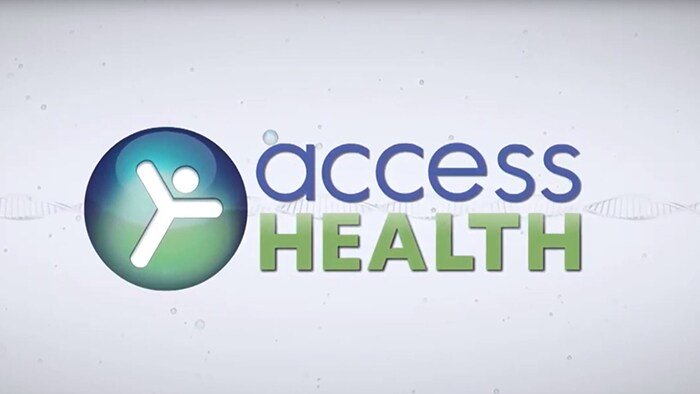Access Health East Haven, CT, plays an essential role in helping individuals, families, and small businesses find affordable, quality coverage. In communities like East Haven, residents span a mix of young families, retirees, self-employed entrepreneurs, and workers in seasonal or part-time jobs.
The marketplace’s human touch matters as much as the online tools. That’s where two frontline helpers come in: Qualified Brokers and Navigators. They’re different, complementary, and both free to use. Understanding how each one works can make your next enrollment experience faster, clearer, and more confident.
What Access Health CT Does
Before diving into roles, it helps to know what the marketplace offers. Access Health East Haven, CT is the doorway to:
Private health plans that meet Affordable Care Act standards.
Financial help based on income and household size (premium tax credits and, for some, cost-sharing reductions).
No-cost or low-cost coverage through HUSKY Health/Medicaid and the Children’s Health Insurance Program if you qualify.
Dental plans and, in some cases, vision or supplemental options.
You can apply during the annual Open Enrollment Period or if you qualify for a Special Enrollment Period (after life events like losing other coverage, moving to Connecticut, having a baby, getting married, or significant changes in income).
The Two Guides on Your Side
Navigators: Community-Rooted, Unbiased Guides
Navigators are trained, community-based assisters. Think of them as your local wayfinders: they help you understand eligibility, complete your application, upload documents, and compare plan features. Navigators are impartial.
They don’t recommend a particular insurer or plan. Their mission is to make the process understandable and accessible. They often partner with community organizations, libraries, senior centers, and town halls, so in East Haven you might meet a Navigator through a local nonprofit event or a pop-up enrollment fair.
What Navigators do best:
- Explain financial help and eligibility without jargon.
- Walk you through account creation, identity proofing, and document uploads.
- Compare plan features at a high level (networks, tiers, deductibles, out-of-pocket maximums).
- Connect you to language support and disability accommodations.
- Help with post-enrollment tasks like reporting life changes.
- Qualified Brokers: Licensed Advisors Who Can Recommend Plans
Qualified Brokers are state-licensed insurance professionals who are also certified to assist on the Access Health CT platform. Like Navigators, they can help with your application and explain benefits; unlike Navigators.
Brokers can go a step further and recommend specific plans based on your needs, risk tolerance, and preferred providers. They can discuss plan nuances, like formularies, tiered networks, referral rules, and how a plan might work with your existing doctors or medications.
What Brokers do best:
Provide tailored plan recommendations and comparative analysis.
Review provider networks and drug formularies in detail.
Strategize around premiums vs. out-of-pocket costs for your likely care.
Advise small employers or sole proprietors on coverage options.
Support you year-round with claims issues, renewals, and plan changes.
How This Plays Out in East Haven
Access Health East Haven, CT residents often juggle a mix of care needs, primary care, pediatric visits, behavioral health, and specialist referrals to providers across Greater New Haven. A Navigator can help you start the journey: confirming whether you qualify for HUSKY Health or financial help.
Making sure your household and income information is entered correctly, and explaining how cost-sharing works. If you already have a preferred physician at an area hospital or clinic, a Broker can then zero in on which plans include that provider in-network and what your real costs might look like across the year.
In practical terms, it’s common for a family to begin with a Navigator to get comfortable, then loop in a Broker for final selection, especially when medications or specific specialists are involved. Both roles can collaborate; you’re not choosing one forever. You’re building a support team.
Preparing for Your Appointment
Whether you meet a Navigator at a community event or sit down with a Broker in a nearby office (or virtually), bring:
Household details: Names, dates of birth, Social Security numbers (if you have them), immigration status if applicable.
Income proof: Recent pay stubs, self-employment records, unemployment statements, benefit letters, or last year’s tax return if your income is stable.
Coverage history: Any notices about losing coverage, COBRA offers, or prior plan details.
Care needs: Your doctors’ names, your preferred hospitals/clinics, and a list of medications (with dosages).
Budget guardrails: A sense of what monthly premium feels sustainable and how much risk you can tolerate for deductibles and copays.
With this information, a Navigator can determine eligibility and credits; a Broker can then overlay plan design to match your budget and provider preferences.
Cost, Confidentiality, and Quality
No charge: Using Navigators and Brokers is free for consumers. Brokers are compensated by insurers, but your premium is the same whether you work with a Broker or enroll on your own.
Your data matters: Both roles follow strict privacy and security standards. They’ll only collect what’s necessary to complete your application and help with verification.
Training and accountability: Navigators complete state-approved training. Brokers hold insurance licenses and must meet ongoing education and marketplace certification requirements.
When to Choose Which (and Why You Might Use Both)
If you’re new to Access Health CT or unsure about eligibility: Start with a Navigator to build your foundation.
If you have specific doctors or medications you must keep in-network: Add a Broker for precise plan matching.
If English isn’t your first language or you need accessibility support: A Navigator can coordinate language services and onsite or virtual accommodations.
If you run a micro-business or freelance: A Broker can help you weigh on-exchange plans versus other options and plan ahead for tax time.
If you had a mid-year life change (job loss, move, birth): Either role can confirm a Special Enrollment Period and keep your coverage continuous.
Common Misunderstandings—Cleared Up
“I make too much for help.” Financial help phases out gradually. A quick eligibility check can surprise you, especially if premiums are high in your area or family size is larger than you think counts.
“I have to change doctors.” Not always. A Broker can search plans by provider network and show what it costs to keep your current doctor.
“I’m locked in for a year.” Open Enrollment is the main window, but many life events trigger a Special Enrollment Period. Always ask.
“Free help can’t be expert help.” Navigators are trained specialists, and Brokers are licensed professionals—both bring real expertise to the table.
A Quick East Haven Scenario
Picture a two-adult household in East Haven with one partner working part-time and the other starting a small landscaping business. They’re not offered employer coverage. A Navigator helps them set up an Access Health East Haven, CT account, verify identity, and project income (including variable self-employment earnings). They learn they qualify for premium tax credits and, based on income, potential cost-sharing reductions with a silver plan.
Next, they connect with a Broker who checks that their preferred primary care clinic and a commonly used orthopedic group are in-network. The Broker compares two silver plans: one with a slightly higher premium but lower deductible and better physical therapy copays, and another with a lower premium but narrower network.
They choose the first, because it’s more predictable if an injury occurs during the busy season. They leave with a plan they understand, documentation uploaded, and confidence in what their care will cost.
Post-Enrollment: Don’t Go It Alone
Your relationship with Navigators and Brokers doesn’t end once you click “enroll.” You can ask for help if:
The marketplace asks for additional documents (like income verification or proof of residency).
Your income changes midyear, and you need to update your application to keep tax credits accurate.
A claim is denied or a bill looks off, Brokers can often untangle issues with carriers, and Navigators can help you understand appeals processes or direct you to consumer assistance resources.
You’re planning ahead for next Open Enrollment and want to reassess networks, medications, or costs.
How to Get Connected in East Haven
Look for local enrollment events hosted by community groups, libraries, or town services—Navigators are often on site.
Schedule a virtual or in-person meeting with a nearby Qualified Broker who’s certified for Access Health CT.
Use Access Health CT’s website to search for assisters by ZIP code and language, or call the customer support line for help booking an appointment.
Conclusion
Access Health East Haven, CT, the smartest path to the right health coverage is rarely a solo trek. Navigators make the system understandable and accessible; Qualified Brokers translate your personal needs into a specific plan recommendation. Together, they turn a complex decision into a guided, confident choice—so you can spend less time deciphering fine print and more time focusing on your health, your family, and your work.







